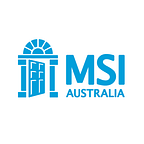Medical abortion access issues remain despite decriminalisation
2021 will be a momentous year for sexual and reproductive health rights in Australia.
This will be the first year in over 100 years that every woman or pregnant person can access abortion in Australia without the threat of being criminalised. It is the first time in history that medical abortion via telehealth will be legal in every state and territory of Australia.
Despite this progress, abortion access in Australia is still a postcode lottery.
Today MS Health published data on the number of prescribers (doctors/nurse practitioners) and dispensers (pharmacists) of medical abortion in Australia.* It illustrates glaring access gaps in New South Wales, Queensland, South Australia, Tasmania and Western Australia.
Here are some ways that Australia could increase medical abortion access.
Clinical education strategies need to include medical abortion care
Provide incentives to increase the number of prescribers and dispensers of medical abortion. This is particularly relevant during post-abortion decriminalisation reform processes that continue in Queensland, New South Wales and South Australia.
Invest in clinical education for GPs to increase capacity for medical abortion care alongside contraceptive care, STI and reproductive coercion prevention. Nurse-led medical abortion care is on the horizon, so consider how nurse practitioners, nurses, midwives and Aboriginal and Torres Strait Islander health workers could be included in training sessions.
Cost should not be a barrier to abortion
Non-profit women’s health centres, community centres and domestic and family violence support agencies fill a health funding gap in abortion care. At Marie Stopes Australia the frequency and size of our Choice Fund donations have decreased dramatically since the pandemic began, so any financial assistance granted requires accessing organisational reserves.
Demand for Choice Fund assistance to provide abortion is higher in New South Wales than any other jurisdiction. Resourcing for medical abortion via telehealth remains uncertain. Governments should fully fund clients who choose abortion, particularly people with Health Care Cards and those with or without Medicare access who are experiencing financial hardship.
People accessing medical abortion should not have to face picketers
Western Australia is the only jurisdiction in Australia without safe access zones. Metropolitan areas of Western Australia have lower access to medical abortion prescribers and dispensers than every other jurisdiction in Australia. Some GPs in Western Australia have said they do not want to be prescribers of medical abortion until safe access zones are in place.
The Public Health Amendment Bill proposes measures that would enable safe access zones for people in Western Australia. Our Choice WA and Fair Agenda are campaigning for the Bill to pass this year. At this stage the Bill will not be tabled again until mid to late 2021.
Medical abortion access needs to be embedded through health strategy
Australia needs a sexual and reproductive health strategy. The National Women’s Health Strategy includes ‘equitable access to pregnancy termination services’, yet there have been no funding announcements, implementation plans, measurement of change or reporting on progress.
The draft National Preventative Health Strategy does not once mention sexual and reproductive health or sexuality and relationships education. Pandemic management and response mechanisms fail to prioritise sexual and reproductive health equity. When strategy silences sexual and reproductive health, opportunities to invest in medical abortion access are overlooked.
Coerced or forced medical abortion must be prevented
For decades, social and disability justice movements have protested coerced and forced medical procedures. This past year reproductive coercion, including coerced or forced medical abortion has for the first time been recognised in national violence prevention and women’s health strategy and policy.
As strategies translate to policy and practice, the same communities who have lobbied for decades need to be involved in co-design. They include Aboriginal and Torres Strait Islander people, women with disabilities, women on temporary visas, women who are incarcerated and LGBTIQ+ people. Medical abortion access requires bodily autonomy.
The figures speak for themselves. Decriminalisation alone does not increase access to abortion. We must continue on this trajectory and work together to ensure every woman and pregnant person in Australia wanting to access medical abortion can do so.
* MS Health is a sister organisation to Marie Stopes Australia, both organisations are subsidiaries of MSI Reproductive Choices.
If you or anyone you know needs support, you can contact the National Sexual Assault, Domestic and Family Violence Counselling Service 1800 RESPECT on 1800 737 732.
Jamal Hakim is the Managing Director at Marie Stopes Australia. He currently holds several board appointments, including with Democracy in Colour, MS Health Pty Ltd and Marie Stopes Papua New Guinea. In 2020, Jamal was elected as a Councillor for the City of Melbourne. You can follow Jamal on Twitter.
Bonney Corbin is the Head of Policy at Marie Stopes Australia where she collaborates with doctors, nurses, midwives and counsellors to advocate for sexual and reproductive health, rights and justice. Bonney is also Chair of the Australian Women’s Health Network and Vice Chair of Violence Prevention Australia. You can follow Bonney on Twitter.
